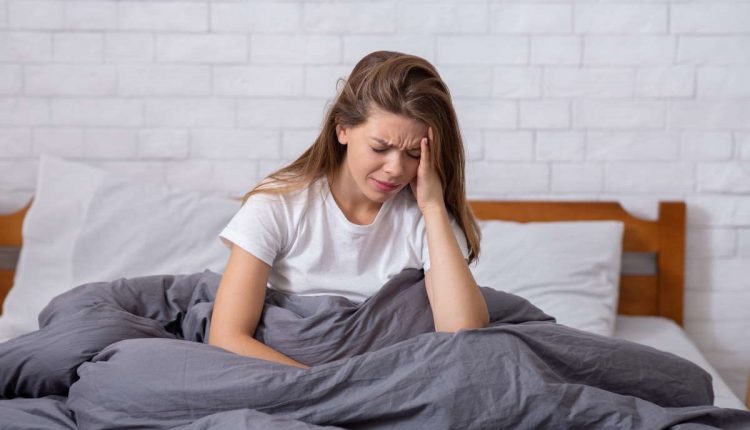
Waking up headaches: what are the causes and what to do
Headaches are a very common type of headache, which can develop due to very different factors
These include sleep: if sleep is too short, too long, or disturbed, upon waking the patient may experience a headache of varying intensity and duration.
This is a disorder that must be taken into account and properly treated, primarily by treating the underlying sleep problems that must be resolved before they become disabling.
Sleep and headaches: why it is important to sleep well
Restorative sleep of the right duration makes a very important contribution to the health of our organism, both in terms of the body and the mind.
Thanks to sleep, our body regains the energy lost during the day, supporting metabolic processes and maintaining a good mood.
However, sleep can be disturbed by various factors: a meal that is too heavy and too close to bedtime, alcohol abuse, a room that is too warm, or even a state of anxiety and stress that prevents the mind from reaching the right state of relaxation.
When headaches disturb sleep
Stress is one of the main factors in insomnia, but conditions such as migraine can also prevent proper rest.
In fact, migraine sufferers risk finding themselves caught in a vicious circle, whereby difficulty in getting to sleep is followed by another headache the next morning to deal with.
Migraine, moreover, can also lead to waking up or make rest more disturbed, as it manifests itself most often between 4 and 9 am.
The brain areas that control sleep and headaches, in fact, are the same and for this reason there may be correlations between the two: headache sufferers, for example, are more likely to also suffer from sleep disorders.
Cluster headache, in particular, usually arises during the REM phase, while hypnic headache is a type of bilateral headache typical of old age that only occurs when the patient is asleep, causing the patient to wake up and lasting up to 4 hours after sleep has ended.
Waking up headaches: what are the causes?
Not only night headaches: there are several causes that can trigger a headache upon waking.
These include high blood pressure, but also muscular pain in the neck area resulting from poor posture during the night, or tension in the jaw area that leads to clenching and grinding the teeth while sleeping (bruxism).
A waking headache may also indicate the presence of obstructive sleep apnoea: a condition that, if suspected, should be investigated because it can cause various discomforts.
Sleep deprivation caused by insomnia can also be the cause of severe headaches upon waking
Patients who are unable to regularise their sleep and who continue to experience the problem for more than two to three weeks should consult a neurological specialist, who will be able to give the most appropriate indications and diagnose possible pathologies such as those we have mentioned, from sleep apnoea to bruxism.
However, there are some tips that it is in any case useful to put into practice every day: if in fact sleep problems are caused by minor daily anxieties or wrong habits, changing one’s lifestyle can be the first step towards improving one’s attitude to sleep.
The first thing to do is to keep a regular night’s rest: going to bed and waking up at the same time always helps our organism to approach sleep.
The room in which one sleeps should have the right temperature, neither too hot nor too cold, and good ventilation, as well as being dark and quiet.
In the hours before sleep, it is also good not to stimulate the brain with stimuli such as those caused by light screens and to avoid substances that can affect different areas of the body, such as smoking, alcohol, caffeine and very heavy, sugary or spicy foods (and physical activity is also not recommended before sleep).
Instead, it is recommended to use herbal teas that have a relaxing effect, such as chamomile, melatonin, valerian, or lavender, and, if your doctor recommends it, hypnotic sedatives.
Finally, if you feel tired during the day and want to take a ‘nap’, remember not to exceed 45 minutes.
Read Also:
Emergency Live Even More…Live: Download The New Free App Of Your Newspaper For IOS And Android
Migraine And Tension-Type Headache: How To Distinguish Between Them?
Headaches And Dizziness: It Could Be Vestibular Migraine
Monoclonal Antibodies And Botulinum Toxin: New Treatments For Migraines
Migraine With Brainstem Aura (Basilar Migraine)
Migraine And Tension-Type Headache: How To Distinguish Between Them?
Paroxysmal Positional Vertigo (BPPV), What Is It?
Headaches And Dizziness: It Could Be Vestibular Migraine



